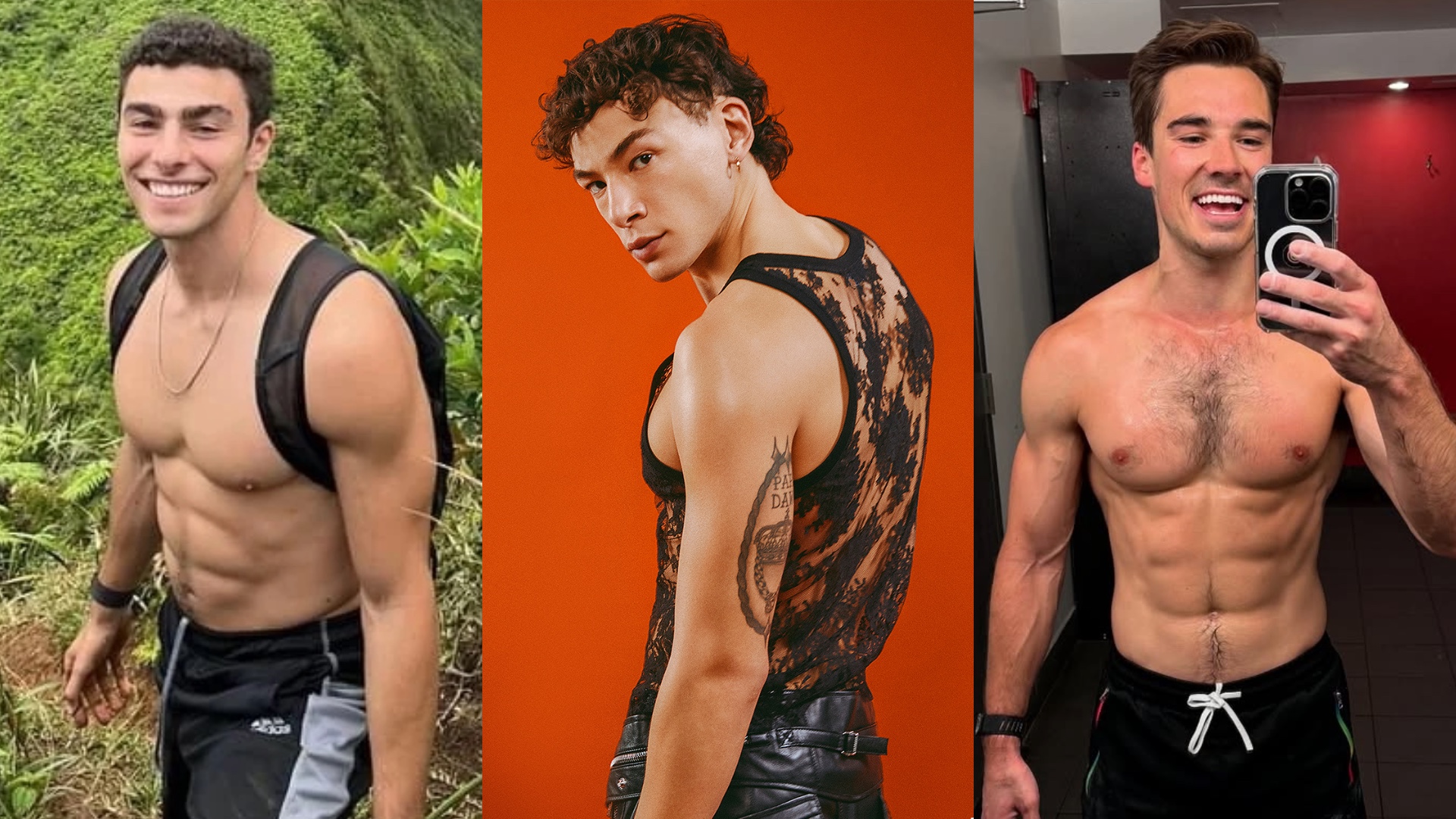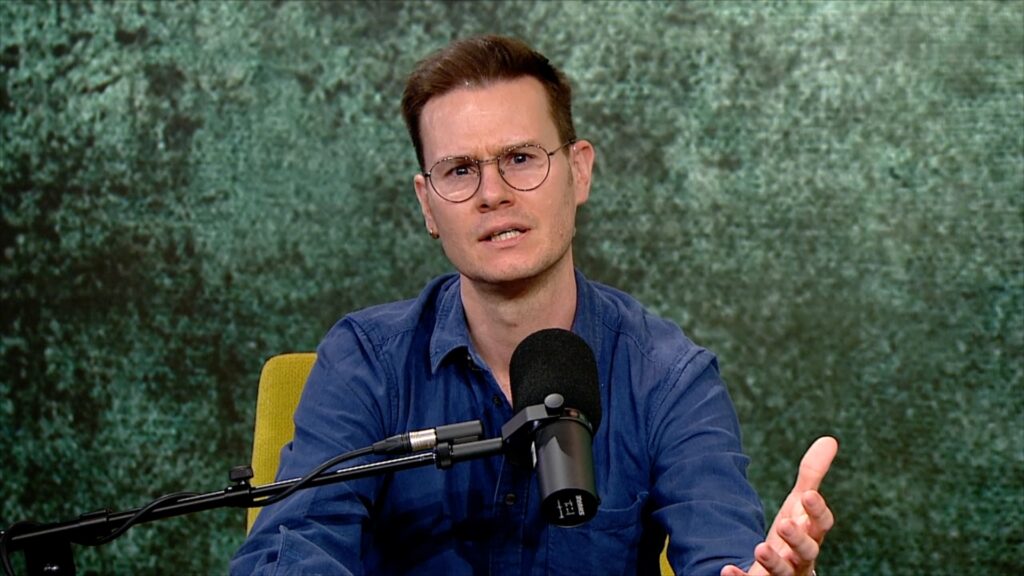Luigi Mangione and pretty privilege: The unearned currency of good looks, explored by those who live it (EXCLUSIVE)
"Pretty privilege” — a golden ticket that can make life easier for those who possess it — is especially layered within the queer community, Attitude learns
By Callum Wells

When Luigi Mangione’s face first flashed across the internet last December, the world paid attention. His image — smiling, shirtless, with chiselled features — cut through any digital noise, making him an instant viral sensation. But this wasn’t just another social media heartthrob. Mangione was accused of fatally shooting Brian Thompson, the CEO of US insurance company UnitedHealthcare, a charge he denies. Despite the shocking allegation, Mangione’s striking good looks turned his alleged crime into an online spectacle that exposed a stark truth about our society: physical appearance can act as an unearned currency.
The internet transformed Mangione from a suspect into a subject of a digital cult. Social media users created fan accounts, and crowdfunding pages for his legal defence have raised thousands of dollars. Online stores have sold merchandise emblazoned with his face, including T-shirts that read, “Free Luigi!” and, “But, Daddy, I Love Him.” Online speculation about his bisexuality also fuelled significant interest among the LGBTQ+ community.
Jordan Dunbar, who investigated the case for the BBC World Service’s The Mangione Trial podcast, offers an explanation, “The first image of him pulling down the mask, grinning. That goes online and people start grabbing on it. Because he’s conventionally good-looking, he’s smiling, he doesn’t look threatening.” Shirtless photos of Mangione hiking, found by internet sleuths, added to what Dunbar calls “algorithmic capital”. Because these images were so engaging, people were “riding on it, they’re liking it and then it’s getting shared”.
It’s a phenomenon often referred to as “pretty privilege” — a golden ticket that can make life easier for those who possess it

The widespread appeal of Mangione’s image, Dunbar observes, speaks to a subconscious societal bias. “The visuals are the first thing that gets you. It gets you hooked. It gets you invested. And then you want to know more about the person,” he outlines. This is known as the “halo effect”; a psychological bias where one positive trait, like attractiveness, leads us to assume other qualities such as trustworthiness or good health. But the reality is that Mangione is facing second-degree murder charges. While the trial is still to come, Dunbar believes “it is safe to say that if he were not conventionally attractive, we would not be seeing the same level of interest here.”
It’s a phenomenon often referred to as “pretty privilege” — a golden ticket that can make life easier for those who possess it, but one that is especially layered and complex within the queer community. For a group historically marginalised for simply existing, appearance sits at the intersection of a desire for acceptance, past traumas, and the promise — or pressure — of looking a certain way.
According to a 2019 report by the Mental Health Foundation, nearly half of gay and bisexual men surveyed had felt anxious or depressed because of their body image. Another study from The Trevor Project in 2023 found that gay youth are more likely to experience body dissatisfaction than their straight, cisgender male peers.
“To some extent, how good you look is how much you can entice your potential customers” – Fitness creator and Pridefit app founder, Sam Leicht
The unearned currency of pretty privilege is backed by hard numbers, with research consistently showing a “beauty premium” in the UK job market. A 2023 study by the London School of Economics found attractive workers earned, on average, 15 per cent more than their less attractive counterparts — a disparity economists call the “plainness penalty”. The research highlighted that for every point increase in a person’s perceived attractiveness on a five-point scale, there was a corresponding boost in their income. It’s an advantage that plays out even before the job is secured. A separate study by researchers at the University of St Andrews and the University of Essex found that employers are more likely to interview and hire conventionally attractive candidates, especially for public-facing roles.
Fitness creator and Pridefit app founder, Sam Leicht, realises pretty privilege is a business tool — what he calls the “low-hanging fruit”. “To some extent, how good you look is how much you can entice your potential customers,” he says, acknowledging that torso-baring thumbnails on YouTube are a deliberate strategy. But this comes with conflict. New York City-based Leicht found that his body quickly became a symbol. “People believed that their results were going to be my results, when in fact, every single person is so different.” He works to counter this aesthetics-first culture, instead promoting sustainability and performance. “I want fitness to be an hour of your life, not your entire existence,” he says, even if this “long game” doesn’t align with the quick fixes audiences crave. Still, the data is hard to ignore. “A post with a well-researched, deeply informative video on nutrition will get a fraction of the views and likes compared to a simple, shirtless photo.” The algorithm rewards visuals, forcing him to balance authenticity with engagement. Now 30 years old, Leicht remembers that the validation felt good in his twenties. But it quickly soured. “I was getting comments that were super sexual in nature,” he recalls. It began to feel like the “gay male equivalent of, ‘Why are you wearing a short skirt if you don’t want to be catcalled.’” He has since decided to regulate that type of content on his grid, no longer wanting to “open up myself to the opportunity that people could objectify and sexualise me in a way that I was not comfortable with”. The problem, he says, is that confidence built on external validation is fragile. It’s a “very, very slippery slope” because “as soon as you start to age… what does that do to your self-worth?”
Marcus Hodson has faced similar questions. A working model and actor since his teens, he’s walked for Burberry, been photographed by Rankin, and boasts acting credits in Amazon Prime’s Dead Hot and the Paramount+ series, A Gentleman in Moscow. “Obviously, a lot of being in the modelling industry, it’s so much based on aesthetic and, you know, genetics,” he says. His looks have “definitely helped with things”, but they have also created doubt. “It definitely does make you think, ‘Oh, could I…’ he hesitates. ‘I would love to book a job based on talent; just, like, talent.” Roles often come with descriptions like “good-looking” or “really attractive” and, while grateful, he prefers auditions where character briefs are more open. “This is a time for me to just show that I can put in the work and do ‘this is what I can give you as myself’ rather than just my aesthetic.” Hodson also believes his masc demeanour has been an asset. “I’m quite straight-acting,” he says. “I grew up as a rugby boy. I didn’t really have many gay friends so I kind of fit into that sphere as well.
This is an excerpt from a feature appearing in the 2025 Attitude Awards issue. To see the full feature, order your copy of the Attitude Awards 2025 issue now or read it alongside 15 years of back issues on the free Attitude app.
